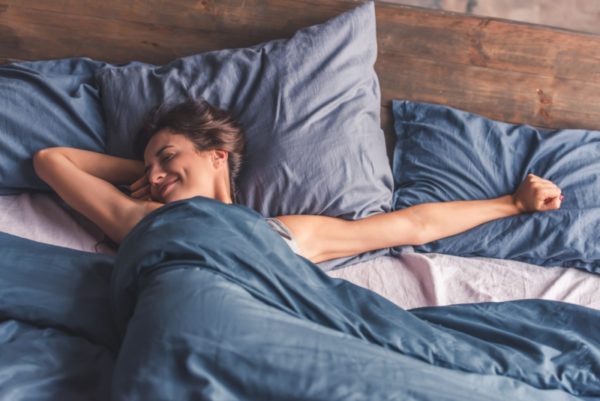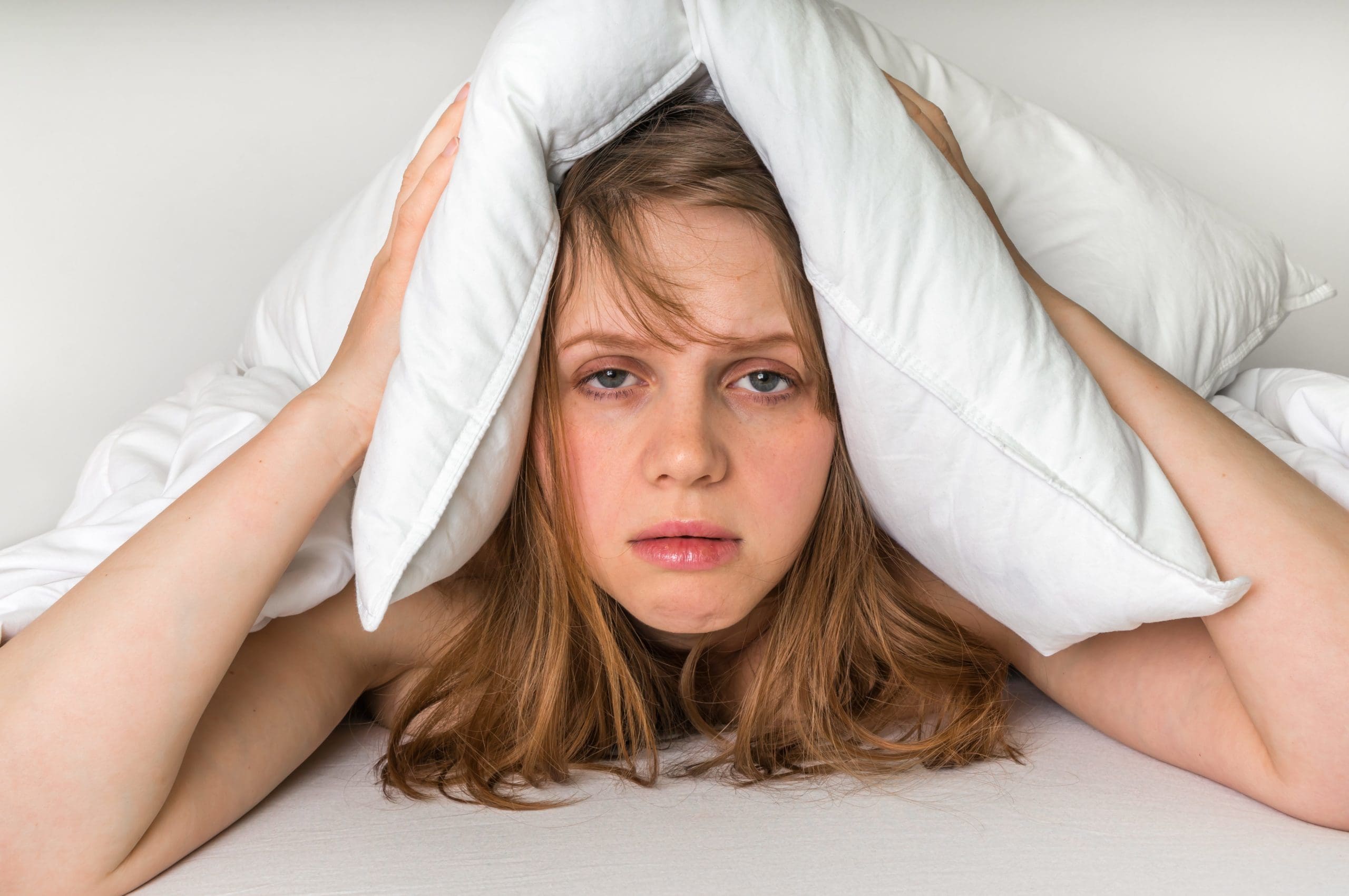Insufficient sleep raises body fat
By naturopath Margaret Jasinska
Almost everyone has suffered with insufficient sleep or poor quality sleep at some point in their life. Life is busy, and many of you don’t get the ideal 7 to 8 hours of sleep each night. Plus there are so many people who suffer with poor quality sleep for one reason or another: sleep apnoea, restless legs syndrome and insomnia are just some examples. Not getting enough sleep changes your body’s hormones in a way that raises hunger and cravings, and promotes weight gain around the torso. Achieving a healthy weight may involve fixing your sleep problems.
A randomized controlled crossover study was led by Naima Covassin, Ph.D., a cardiovascular medicine researcher at Mayo Clinic. She showed that insufficient sleep led to a 9 percent increase in total abdominal fat and an 11 percent increase in abdominal visceral fat, compared to sufficient sleep. Visceral fat is the dangerous type of fat that gets deposited deep inside the abdomen around internal organs. It is strongly linked to cardiac and metabolic diseases, including fatty liver and type 2 diabetes. These findings were published in the Journal of the American College of Cardiology.
According to Virend Somers, M.D., Ph.D., Professor of Cardiovascular Medicine, and principal investigator of the study, “Our findings show that shortened sleep, even in young, healthy and relatively lean subjects, is associated with an increase in calorie intake, a very small increase in weight, and a significant increase in fat accumulation inside the belly. Normally, fat is preferentially deposited subcutaneously or under the skin. However, the inadequate sleep appears to redirect fat to the more dangerous visceral compartment. Importantly, although during recovery sleep there was a decrease in calorie intake and weight, visceral fat continued to increase. This suggests that inadequate sleep is a previously unrecognized trigger for visceral fat deposition, and that catch-up sleep, at least in the short term, does not reverse the visceral fat accumulation. In the long term, these findings implicate inadequate sleep as a contributor to the epidemics of obesity, cardiovascular and metabolic diseases”.
Most people assume that catching up on sleep on the weekend will undo the damage sleep deprivation causes. This research shows that not to be the case. Not sleeping enough causes serious metabolic harm, which accumulates over time. Additionally, not getting enough sleep makes people feel hungrier, and in particular often causes them to crave junk food. This has been known for some time and there is good research to support the mechanisms. If you do not get enough sleep, or you have poor quality, broken sleep, your blood level of various hunger hormones increases. You are also more likely to become insulin resistant. This occurs when the cells of your body no longer respond to insulin properly. This impairs your ability to burn up carbohydrate and use it for energy. Instead your body tends to accumulate more fat, and at the same time you’re left feeling hungry, craving sugar, and never feeling quite satisfied after meals.
If you’re feeling sleep deprived and exhausted, you are probably much less motivated to prepare healthy meals from scratch and get regular exercise. Research has also shown that chronically exhausted people end up buying more food when they go grocery shopping, and more junk food in general. Junk food is so much harder to resist when you feel exhausted.

Ways to improve sleep quality
- Magnesium is a wonderfully relaxing mineral that almost no one gets enough of. Magnesium helps you feel calmer during the days, and sleep more deeply at night. The stress hormone cortisol increases loss of magnesium in urine. So does alcohol.
- Melatonin helps set a healthy circadian rhythm in your body. It is excellent for people who can’t fall asleep, shift workers and people who regularly change time zones.
- Alcohol and sugar can both seriously disturb sleep quality. They both cause leaky gut and promote liver inflammation. That can cause poor quality, restless sleep and may cause over heating or sweating at night.
- Doing some exercise each day (not close to bedtime) can relax your muscles and nerves at nigh time and help you get better sleep.
- High carbohydrate foods like sugar, grains, cereals, starches and foods made of flour all increase visceral fat deposition in the abdomen. If you struggle with getting enough sleep, it’s best to minimise those foods in your diet, because they’ll only add to your troubles.









Leave A Comment